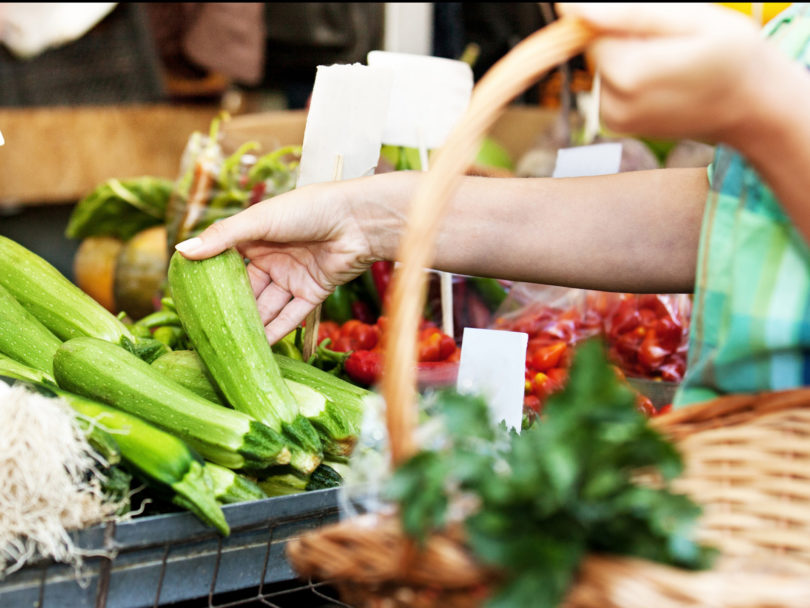For many, the quest to transition to a healthier lifestyle often includes eating more real food and consuming less packaged products. One of the easiest and most cost effective ways to do this is by utilizing your local farmers’ market. While farmers’ markets offerings are frequently considered more expensive than that of traditional grocery stores, certain fare is actually cheaper according to a study from the Northeast Organic Farming Association of Vermont.
As a result of the study, consider which foods you should buy at the farmers’ market and which you should stick to buying at the store.
Items to buy at the farmers’ market:
- Organic
- Of the 14 items examined, farmers’ markets overwhelmingly provided less expensive organic products for every item, except potatoes. In fact, “In some instances organic items at farmers’ markets were even less than conventional items at grocery stores.”
- Lettuce
- Lettuce was found to be almost 50% cheaper to buy at the farmers’ market. So a head of lettuce costing $9.64 at the grocery store will cost $5.83 at the market. Stock up on lettuce and other mixed greens locally in order to prepare fresh salads throughout the week without breaking your budget.
- Cantaloupe, cucumbers, and snow peas
- These three items were significantly cheaper than their store bought equivalents. For example, you could buy roughly three cantaloupes from the market for the price of one cantaloupe at the store.
Items to buy at the grocery store:
- Eggs and potatoes
- Because farmers can’t often compete with the size of large scale egg and potato producers, it is more economical to buy these staples from the store.
- Berries
- In the study, the lowest recorded instance of conventional blueberries in the store was $1.99 per pint and $3.00 per pint at the market. If you’re looking to cut costs, the grocery store wins in this instance.
Though not all produce and products are cheaper than their store counterparts, the value offered by locally grown food is often worth the extra price. The quality of the food is significantly fresher and more nutrient rich since it comes straight from the farm to your table and isn’t sitting on shelves for extended periods of time at the store. Additionally, supporting local farms goes beyond individual prices and ultimately benefits a larger community and environment. In the end, as a consumer it is always beneficial to educate yourself on what you’re buying and where you’re buying it from. Will you be checking out your local farmers’ market?


